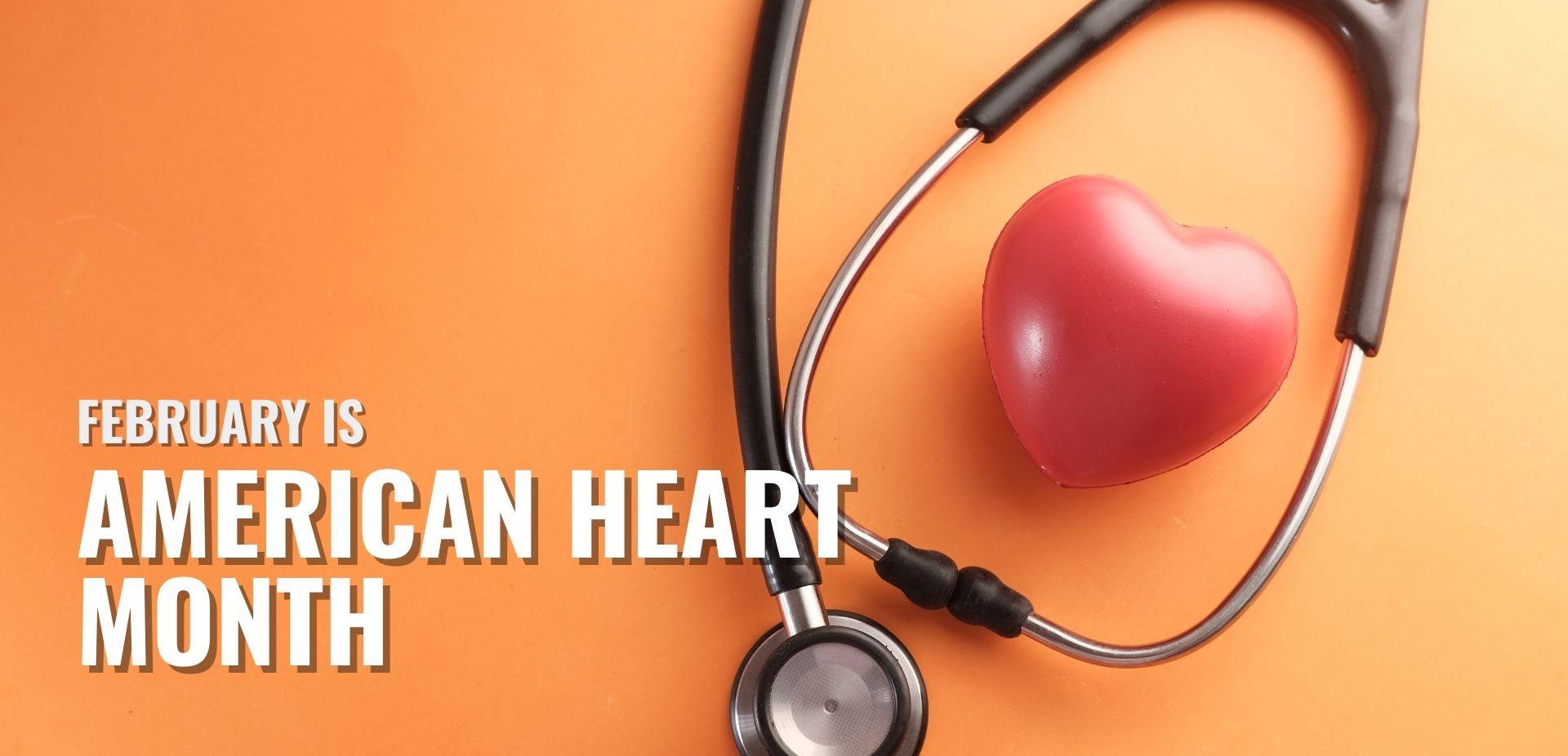February is American Heart Month

How have you addressed your cardiovascular health?
February is American Heart Month, a time when people are called to focus on their cardiovascular health. Heart disease is the leading cause of death for men and women in the United States. Get the facts on heart disease and what can put you at risk.
Regular health exams and tests can help find problems before they start. They also can help find problems early, when your chances for treatment and cure are better. By getting the right health services, screenings, and treatments, you are taking steps that help your chances of living a longer, healthier life.
What is heart disease?
The term “heart disease” refers to several types of heart conditions. The most common type of heart disease in the United States is coronary artery disease (CAD), which affects the blood flow to the heart. Decreased blood flow can cause a heart attack.
What are the risk factors for heart disease?
High blood pressure, high blood cholesterol, and smoking are key risk factors for heart disease. About half of Americans (47%) have at least one of these three risk factors. Several other medical conditions and lifestyle choices can also put people at a higher risk for heart disease, including
What are the signs and symptoms of a heart attack?
According to the American Heart Association, if you have any of these signs, call 9-1-1 and get to a hospital right away.
– Uncomfortable pressure, squeezing, fullness or pain in the center of your chest. It lasts more than a few minutes or goes away and comes back.
– Pain or discomfort in one or both arms, the back, neck, jaw or stomach.
– Shortness of breath with or without chest discomfort.
– Other signs such as breaking out in a cold sweat, nausea or lightheadedness.
– As with men, women’s most common heart attack symptom is chest pain or discomfort. But women are somewhat more likely than men to experience some of the other common symptoms, particularly shortness of breath, nausea/vomiting and back or jaw pain.
How to help prevent heart disease?
– Choose a healthy eating plan
– Be physically active
– Find a doctor and have regular wellness exams
– Don’t smoke and avoid secondhand smoke
– Know your family history
– Tame your stress
Sources: American Heart Association and Centers for Disease Control and Prevention
Maintaining Heart Health During COVID-19
Don’t forget to focus on your heart health, especially during the COVID-19 as fewer people are seeking routine medical care during the pandemic.
Interactive Resources
Eat Smart, Move More! [PDF Download]: Use this fillable calendar to reach your healthy eating and physical activity goals one day at a time.


